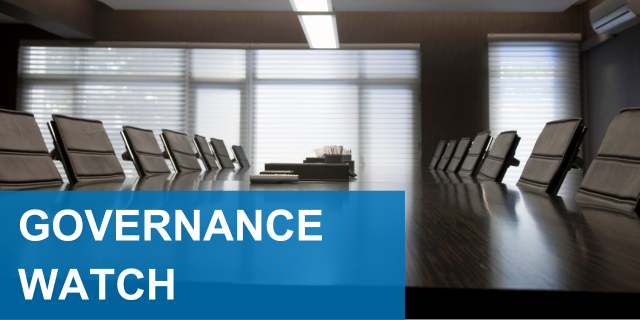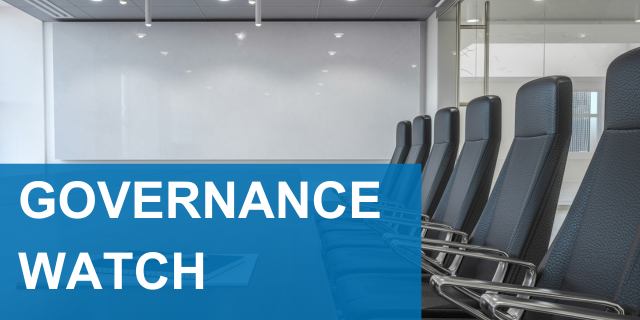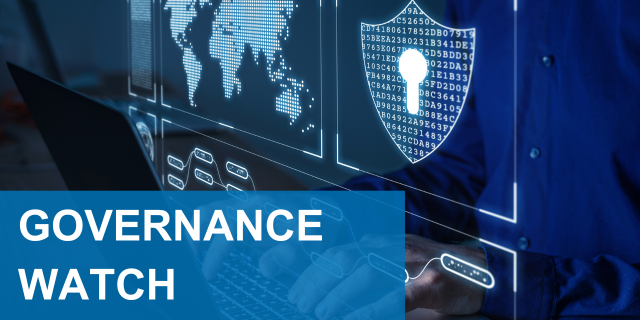Press Release
The Conference Board Convenes Bipartisan Panel of Lawmakers and Leading Advocate Who Spearheaded Landmark Federal #MeToo Law
2022-03-31
The Conference Board brought together three individuals who played leading roles in the development and passage of groundbreaking federal #MeToo legislation: Senator Kirsten Gillibrand (D-NY), Congressman Ken Buck (R-CO), and Gretchen Carlson, Cofounder of the nonprofit Lift Our Voices, whose lawsuit helped ignite the movement.
Paul Washington, Executive Director of The Conference Board ESG Center, moderated the panel, which focused on the historic path to the bipartisan legislation’s passage, its implications for business, and prospects for future bipartisan collaboration on issues of economic opportunity and workplace fairness.
Passed with strong support in February, The Ending Forced Arbitration of Sexual Assault and Sexual Harassment Act marks one of the most significant workplace reforms in recent decades. It prohibits companies from forcing those who claim sexual harassment and assault into arbitration, and now provides them with the choice to bring their claim in an open court of law. As the panel noted, this change not only helps to bring individual claims to light, but also can identify broader patterns of sexual abuse and harassment.
The public can view the full panel discussion here. Insights from the conversation include:
How a grassroots movement led to bipartisan action:
The panelists described the slow but steady process of finding common ground among Democratic and Republican lawmakers. They noted key elements that made this new law possible, including:
- A willingness to compromise and to make incremental progress. Key amendments to the bill helped to increase support among lawmakers. For example, the final legislation does not address sexual discrimination, considered too broad by some lawmakers. It also leaves the definition of sexual harassment up to the states, instead of providing a federal definition.
- Keeping the rhetoric down. Focusing on the bill’s objectives—advancing safety and fairness in the workplace—proved effective in attracting support across the aisle.
- Leveraging data was essential. The extensive body of data on sexual assault and harassment in the workplace helped garner support for passing this legislation.
Steps companies can start taking in response to the #MeToo law:
- Review company policies. The legislation gives employees a choice between arbitration and recourse in courts. Companies should review their existing policies on arbitration and consider whether to require arbitration in contexts beyond sexual harassment and abuse.
- Decide what to communicate to employees. With employees now having new rights, companies need to decide how and what they want to communicate to employees about this change.
As Gretchen Carlson noted about arbitration, “Most people have no idea what it means. And that includes not only the millions of employees across the country, but also people who run companies. When I talk to companies every single day, many times C-suite executives have to say to me, ‘I need to check my contract.’”
How companies can advance their legislative goals in a polarized environment:
In addition to being willing to compromise and focusing on the facts, the panel suggested steps companies should take to achieve legislative goals.
- Step up direct engagement from CEOs. When CEOs speak, policymakers listen.
“Almost half of U.S. corporations say that the environment for corporate political activity in 2022 will be even more challenging than last year. Despite the tough landscape, CEOs shouldn’t retreat from the public square. Business leaders can be a moderating influence on partisanship, as they are more concerned about achieving practical policy outcomes,” said Paul Washington, Executive Director of The Conference Board ESG Center.
- Look beyond just getting a vote. Companies need to provide lawmakers with the information they need to be not just supporters, but ambassadors. Congressman Buck noted the importance of being able to make the case to his colleagues and constituents.
- Persistence. Carlson stressed how it took time to build a coalition of supporters in Congress. The lawmakers stated companies should not reduce their long-term advocacy efforts, just because it is a mid-term election year.
Bipartisan prospects for achieving greater opportunity and fairness for workers:
- Childcare. Senator Gillibrand and Congressman Buck expressed an interest—on the spot—to work together, in collaboration with their respective parties, on expanding affordable childcare for working parents.
- Age discrimination. Senator Gillibrand and Gretchen Carlson also mentioned the prospect of bipartisanship in addressing age discrimination in the workplace.
“Economic opportunity and fairness in the workplace are a sweet spot for CEOs. This is where business leaders can come together to advance change, including through The Conference Board’s Committee for Economic Development. Research by The Conference Board shows that the top two social issues for CEOs globally are economic opportunity and fairness. And the top two sustainability issues that consumers (and therefore, voters) care about are fair wages and fair labor conditions,” noted Paul Washington, Executive Director of The Conference Board ESG Center.
The conversation was the first of two webcasts The Conference Board will be hosting on the topic. The next discussion, hosted by the organization’s Human Capital Center, will focus on how companies are responding to this law and pressure from stakeholders on workplace harassment concerns.
Media Contact
About The Conference Board
The Conference Board is the member-driven think tank that delivers Trusted Insights for What’s Ahead®. Founded in 1916, we are a non-partisan, not-for-profit entity holding 501 (c) (3) tax-exempt status in the United States. www.conference-board.org
About The Conference Board ESG Center
The Conference Board ESG Center serves as a resource, platform, and partner to help Member companies address their priorities in corporate governance, sustainability, and citizenship.
For further information contact:
Joseph DiBlasi
781.308.7935
JDiBlasi@tcb.org













